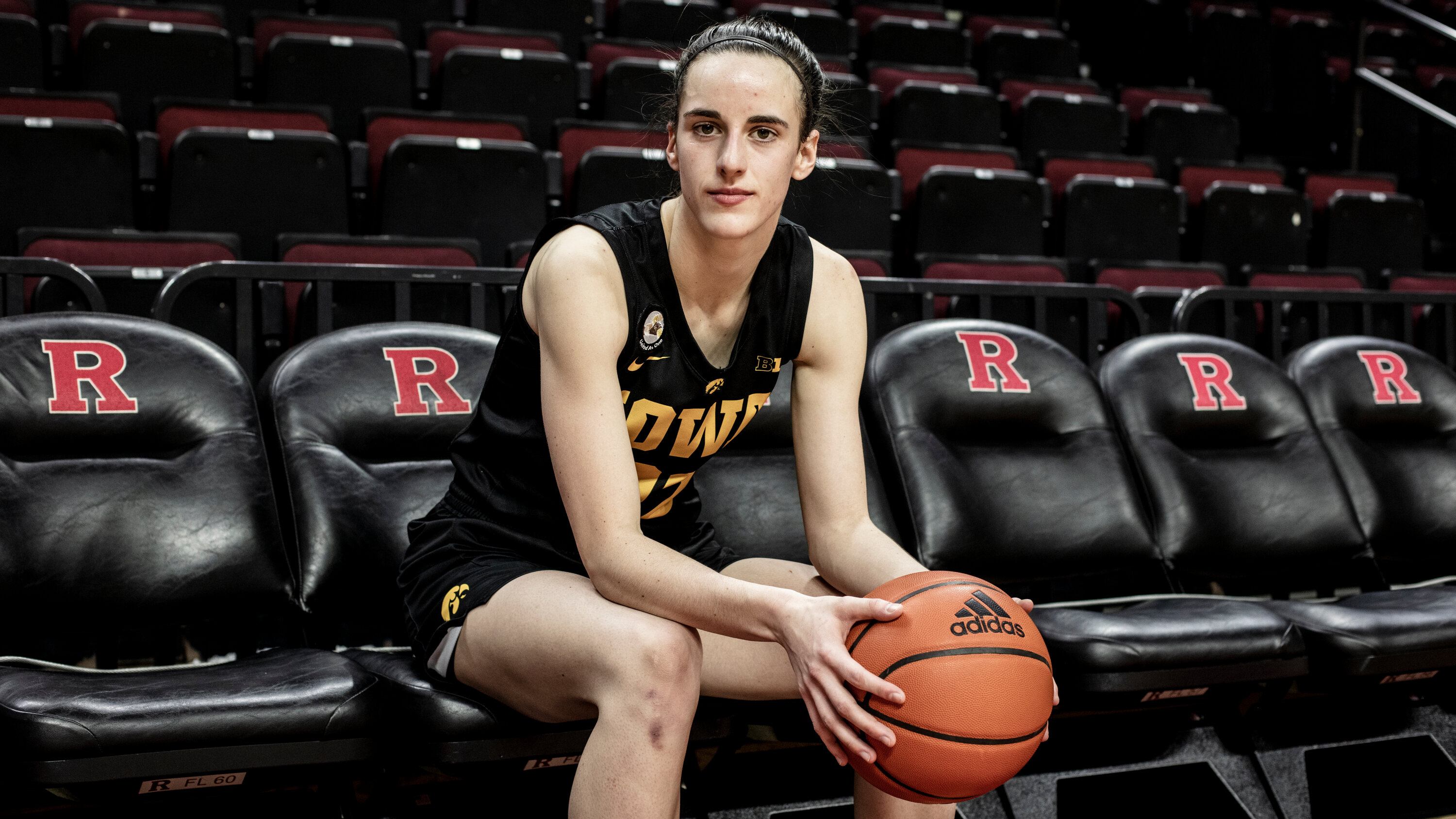Caitlin Clark's Gender Identity Explored
"Is Caitlin Clark trans?" is a question that has been the subject of much speculation and debate. Caitlin Clark is a female athlete who has been open about her struggles with gender dysphoria, and some people have questioned whether or not she is transgender.
There is no consensus on the answer to this question, and it is ultimately up to Caitlin Clark to decide how she identifies. However, the fact that she has been open about her struggles with gender dysphoria suggests that she may identify as transgender. If she does, she would be one of the most high-profile transgender athletes in the world.
The question of whether or not Caitlin Clark is transgender is important because it raises questions about the role of transgender people in sports. Some people believe that transgender athletes should not be allowed to compete in sports, while others believe that they should be allowed to compete as long as they meet the same eligibility requirements as other athletes. This is a complex issue with no easy answers, and it is likely to continue to be debated for years to come.
Is Caitlin Clark Trans?
The question of whether or not Caitlin Clark is trans is a complex one with no easy answer. There are many factors to consider, including her own personal identity, the medical definition of transgender, and the social and cultural implications of being transgender. In this article, we will explore 10 key aspects of this issue to help you better understand the complexities involved.
- Gender identity: Gender identity is a person's internal sense of their own gender. It is distinct from biological sex, which is determined by a person's chromosomes and anatomy.
- Gender dysphoria: Gender dysphoria is a condition in which a person experiences distress because their gender identity does not match their biological sex.
- Transitioning: Transitioning is the process of changing one's gender presentation to match their gender identity. This can involve medical treatments, such as hormone therapy and surgery, as well as social changes, such as changing one's name and pronouns.
- Transgender athlete: A transgender athlete is an athlete who identifies as transgender. Transgender athletes may face discrimination and prejudice from other athletes, coaches, and fans.
- Inclusion: Inclusion is the practice of creating a welcoming and supportive environment for all people, regardless of their gender identity.
- Respect: Respect is the act of treating others with dignity and consideration. Transgender people deserve to be treated with respect, just like everyone else.
- Privacy: Privacy is the right to keep personal information confidential. Transgender people have the right to keep their gender identity private if they choose.
- Safety: Transgender people are at increased risk of violence and discrimination. It is important to create safe spaces for transgender people to live and thrive.
- Equality: Equality means that all people are treated fairly and have the same opportunities, regardless of their gender identity.
- Love: Love is a powerful force that can overcome prejudice and discrimination. We should all strive to love and accept transgender people for who they are.
The question of whether or not Caitlin Clark is trans is a personal one that only she can answer. However, by understanding the key aspects of this issue, we can better support transgender people and create a more inclusive and just society.
Personal details and bio data of Caitlin Clark
| Name | Caitlin Clark ||---|---|| Born | September 25, 2003 || Birthplace | West Des Moines, Iowa || Nationality | American || Height | 6'1" || Weight | 170 lbs || Sport | Basketball || Position | Point guard || Team | Iowa Hawkeyes || Awards | 2x Naismith Trophy winner, 2x AP Player of the Year, USBWA National Freshman of the Year |FAQs About "Is Caitlin Clark Trans?"
This section provides concise answers to frequently asked questions regarding Caitlin Clark's gender identity, the significance of transgender inclusion in sports, and related topics. Each question is addressed in a clear and informative manner.
Question 1: Is Caitlin Clark transgender?Caitlin Clark has not publicly confirmed or denied being transgender. Her gender identity is a personal matter that only she can disclose.
Question 2: Why is the question of transgender athletes important?The inclusion of transgender athletes in sports raises important questions about fairness, equity, and the rights of all athletes. It is crucial to have open and respectful discussions to ensure that transgender athletes are treated with dignity and respect while maintaining the integrity of sports competitions.
Question 3: What are the challenges faced by transgender athletes?Transgender athletes may face discrimination, prejudice, and lack of understanding from other athletes, coaches, and fans. They may also have to deal with the additional stress of transitioning while competing at a high level.
Question 4: How can we create a more inclusive environment for transgender athletes?Creating a more inclusive environment for transgender athletes requires education, understanding, and support. We should listen to the experiences of transgender athletes and work to create policies and practices that ensure their fair treatment.
Question 5: What are the benefits of including transgender athletes in sports?Including transgender athletes in sports can promote diversity, inclusion, and a greater sense of belonging for all athletes. It can also help to break down stereotypes and create a more just and equitable society.
Summary: The issue of transgender athletes is complex and multifaceted. By approaching it with open-mindedness, respect, and a commitment to fairness, we can create a more inclusive and equitable environment for all athletes, regardless of their gender identity.
Transition to the next article section: Now that we have explored some of the key questions and concerns surrounding transgender athletes, let's delve into the specific case of Caitlin Clark and examine the available information and perspectives on her gender identity.
Tips for Understanding "Is Caitlin Clark Trans?"
Approaching the topic of transgender athletes, particularly in the context of Caitlin Clark, requires sensitivity and a commitment to understanding. Here are some tips to guide your exploration:
Tip 1: Respect Individual IdentityCaitlin Clark's gender identity is a personal matter that only she can disclose. Respect her privacy and avoid making assumptions or speculating about her identity.
Tip 2: Use Inclusive LanguageWhen discussing transgender individuals, use respectful and inclusive language. Avoid using outdated or offensive terms. Instead, use gender-neutral pronouns (they/them) or the pronouns that the person prefers.
Tip 3: Educate YourselfTake the time to learn about transgender experiences, terminology, and the challenges they face. This will help you to better understand the topic and engage in meaningful conversations.
Tip 4: Listen to Transgender VoicesListen to the stories and perspectives of transgender individuals, including athletes. Their firsthand accounts can provide valuable insights and help you to develop empathy.
Tip 5: Challenge StereotypesBe aware of and challenge stereotypes about transgender people. Remember that gender identity is not binary, and transgender athletes are just as diverse as any other group.
Tip 6: Support InclusionSupport policies and practices that promote inclusion for transgender athletes. This includes ensuring access to fair competition, safe spaces, and respectful treatment.
Tip 7: Be an AllyIf you witness discrimination or prejudice against transgender athletes, speak up and be an ally. Your support can make a real difference.
By following these tips, you can contribute to a more informed and inclusive dialogue about transgender athletes and create a more welcoming environment for all.
Transition to the article's conclusion: Ultimately, the question of whether or not Caitlin Clark is trans is up to her to answer. However, by approaching the topic with respect, understanding, and a commitment to inclusion, we can foster a more just and equitable society for all athletes.
Conclusion
The question of whether or not Caitlin Clark is transgender is a complex one that has no easy answer. There are many factors to consider, including her own personal identity, the medical definition of transgender, and the social and cultural implications of being transgender. Ultimately, it is up to Caitlin Clark to decide how she identifies.
However, the fact that she has been open about her struggles with gender dysphoria suggests that she may identify as transgender. If she does, she would be one of the most high-profile transgender athletes in the world. This would be a significant step forward for transgender visibility and inclusion in sports.
Regardless of whether or not Caitlin Clark is transgender, her story is an important one. It highlights the challenges that transgender people face, and it shows the importance of creating a more inclusive and welcoming society for all.
Unveiling The Secrets: Danielle Collins' Partner And The Path To Success
Shem Bowman's Cliff Diving Accident: Uncovering The Dangers And Lessons Learned
Unveiling The Secrets: "Ari Kytsya OnlyFans Leaks" Unraveled

Caitlin Clark breaks records during historic March Madness run CNN

Women's Tournament Challenge ESPN Group

Caitlin Clark Is Piling Up Points and Records at Her Own (Fast) Pace
ncG1vNJzZmibpaK2uXrApqpsZpSetKrAwKWmnJ2Ro8CxrcKeqmebn6J8qr%2BMnJiirJyeu26vy5qppGWkp66vv42hq6ak